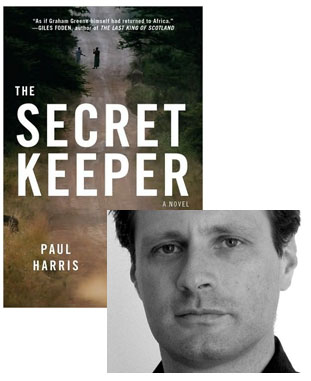Read This: Online Marketing 101
Last week, Ryan Chapman, the digital marketing specialist for Farrar, Straus, & Giroux, posted a syllabus of books for online marketers that was, as the kids say, full of win, including some unexpected choices like William Gibson’s Pattern Recognition and G.K. Chesterton’s The Man Who Was Thursday. Here’s a few more books I would add to his list:

The Backchannel, Cliff Atkinson: Although this book’s focus seems pretty narrow—a discussion of the ways speeches and conference panels have been affected by the ability of audience members to engage in running commentary with each other and to the outside world—that’s also a powerful reminder to marketers that we don’t have anything remotely like complete control over the stories that are being told about our products… but we can work with the system instead of throwing our hands up in despair. See also Sarah Milstein and Tim O’Reilly’s The Twitter Book, one of the best guides I’ve seen so far to finding “your microblogging voice.”
(more…)
22 February 2010 | read this |
Paul Harris & The War Correspondent’s Secret

I met Paul Harris, the American correspondent for The Observer, last year at a party celebrating the release of his debut novel, The Secret Keeper; I’d gotten to the bar a bit ahead of the rest of the crowd, so by the time he walked in, I was already immersed in the opening chapters. Now that the novel’s out in paperback, Paul wanted to share some thoughts upon how it draws upon his professional—and emotional—experiences before he came to the States…
The title of a talk I went to recently at Columbia University was slightly titillating. It was called “The Secret Life of War Reporters” and was inspired by Donald Marguiles’ current hit play Time Stands Still. The panel included two very distinguished war correspondents, one photographer and one writer. Both of them—like myself—no longer cover conflicts, but they talked openly and frankly about the strange world of war reporting that had defined their careers and much of their lives.
They covered the usual ground familiar to most people from countless films and books about war reporting. There was the agonising over the ethical dilemmas of essentially being a tourist in someone else’s tragedy. There was a discussion of the high physical and mental price that brave journalists pay in order to bring light to otherwise awful events. There was talk of courage and doing good in the world. It was all true and admirable. But a “secret”? Not really.
Yet there is a dirty secret in the life of many war reporters. It was certainly present in my own experiences as a reporter in Africa and while embedded with the British army in Iraq during the 2003 invasion. It is also something I explore in The Secret Keeper, which was inspired by my experiences covering the end of the civil war in the West African country of Sierra Leone. That secret is that in many ways war reporting is tremendously good fun.
21 February 2010 | guest authors |

 Our Endless and Proper Work is my new book with Belt Publishing about starting (and sticking to) a productive writing practice.
Our Endless and Proper Work is my new book with Belt Publishing about starting (and sticking to) a productive writing practice. 
